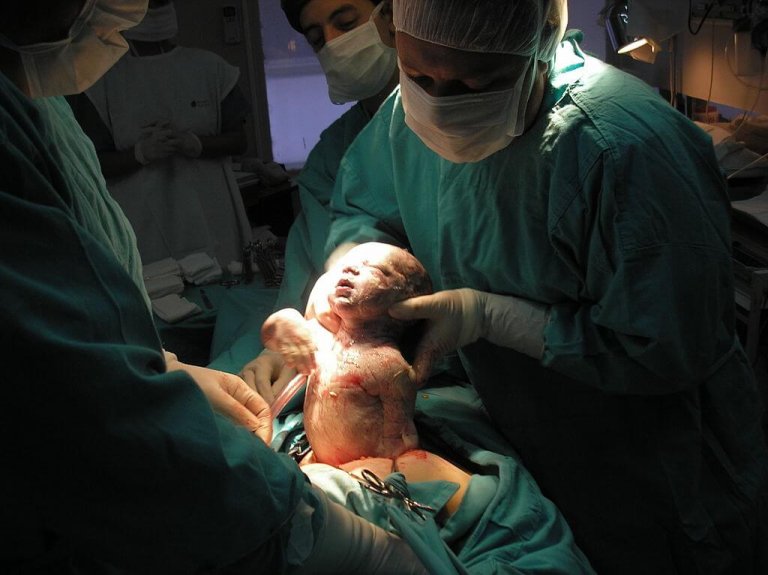Premature Birth: How to Reduce the Risk


Reviewed and approved by the doctor Nelton Ramos
One of the biggest fears of any pregnant woman is to go through a premature birth, with all the health issues that this can cause for the baby.
Today, thanks to advancements in medical science, premature babies are more likely than ever to survive and thrive. At the same time, there are measures that expectant mothers can take to prevent premature birth.
Babies born before full term are at a greater risk of medical complications. Depending on how many weeks along the pregnancy is by the time the baby is born, certain organs may be underdeveloped.
Respiratory complications are among the most common.
Good antenatal care can reduce the risk of premature birth

As soon as you find out that you’re pregnant, go to the doctor to begin the process of antenatal medical care.
Keeping up with medical checkups will allow you to monitor your health and the development of your baby. This way, you’ll be able to detect any complications and address them as quickly as possible.
If your doctor determines that you’re at risk of a premature birth, this can help you prepare for the situation.
If this is the case, the first course of action will usually be to prescribe treatment with corticosteroids to help the baby‘s lungs develop early on. This will reduce the risk of infections and complications at birth.
Increase your intake of iron and folic acid
Studies by the World Health Organization have shown that iron and folic acid deficiencies in pregnant women can increase the risk of premature birth.
A diet low in iron and folic acid-rich foods can lead to certain forms of anemia that accelerate the processes of labor and birth. This can be avoided by taking vitamin and mineral supplements as prescribed by your doctor.
Understanding the optimal amounts of iron and folic acid that you should be getting during pregnancy will help you prevent a premature birth.
Watch your weight

It’s a fact that women who are either overweight or very slim have a higher risk of suffering from a premature birth. This relates to problems resulting from a poor diet.
When a pregnant woman suffers from an eating disorder, the consequences also affect the fetus that she is carrying.
Eating a balanced diet and following your doctor’s instructions can help prevent problems such as high blood pressure, high triglycerides, an abnormal hemoglobin count and cholesterol.
All of these directly impact the development of the placenta and the fetus.
“Love at first sight is what you feel for your baby. You fall so hard that you can’t ever get up again”
-Anonymous-
Stay away from alcohol and drugs
The connection between alcohol and drug consumption and pregnancy complications is so well-known that it may seem unnecessary to repeat it.
However, statistics show that a significant number of women continue to ignore the warnings.
Alcohol and other drugs have an enormous impact on the baby’s development, particularly the nervous system. They can also lead to abnormalities in the development of certain organs, the consequences of which are severe and permanent.
Cut out smoking for a healthy pregnancy
Just like drugs and alcohol, tobacco is particularly harmful for pregnant women.
When you smoke, the toxic components of the cigarette pass into your bloodstream. In pregnant women, this means that these chemicals are present in the blood that carries oxygen to the baby.
As a consequence, the size of the placenta tends to be smaller in women who smoke. This can lead to premature birth, or in extreme cases, stillbirth.
In addition to the risk of premature birth, the baby’s lungs may be affected, along with their brain function. The child may suffer from long-term impacts such as learning difficulties or motor disabilities.
Other points
- The risk of premature birth increases in women under 17 or over 35 years old. This means that teen pregnancy is another risk factor.
- Stay hydrated at all times. Not getting enough fluids can trigger contractions and lead to premature birth.
- Women who weigh less than nine months after giving birth before becoming pregnant again are at a higher risk of premature birth.
- In general, take care of your body and stick to a healthy diet.
- Regular exercise can help minimize the risk of complications such as pre-eclampsia or gestational diabetes. Both of these conditions may make it necessary to induce labor before full term.
Finally, get to know the symptoms and signs of a premature birth. These include more than five contractions per hour, fresh blood in your vaginal discharge, swollen hands and face, pain when urinating, frequent vomiting, intense lower back pain and pressure on the pelvis, among others.
All cited sources were thoroughly reviewed by our team to ensure their quality, reliability, currency, and validity. The bibliography of this article was considered reliable and of academic or scientific accuracy.
- Castaigne, V., Picone, O., & Frydman, R. (2012). Parto prematuro. EMC – Ginecología-Obstetricia. https://doi.org/10.1016/s1283-081x(06)45070-0
- Ochoa, A., & Pérez Dettoma, J. (2009). Amenaza de parto prematuro: Rotura prematura de membranas. Corioamnionitis. In Anales del sistema sanitario de Navarra (Vol. 32, pp. 105-119). Gobierno de Navarra. Departamento de Salud. http://scielo.isciii.es/pdf/asisna/v32s1/obstetricia3.pdf
- Palencia, A. (2009). Parto prematuro. Sociedad colombiana de pediatría, 9(4), 10-9.
- Protocolos SEGO. (2004). Amenaza de parto prematuro.
- Quirós, G., Piedra, R., Bolívar, M., & Solano, N. (2016). Parto Pretérmino. Revista Clínica de La Escuela de Medicina UCR-HSJD.
- Roura, L. C. (2006). Parto prematuro. Ed. Médica Panamericana.
This text is provided for informational purposes only and does not replace consultation with a professional. If in doubt, consult your specialist.
